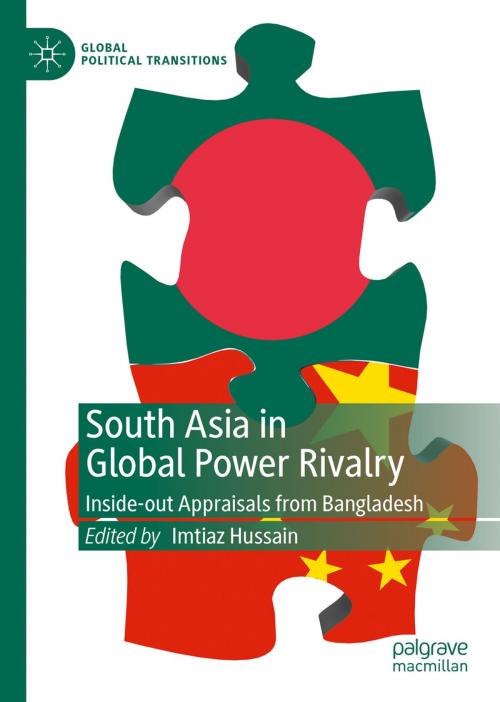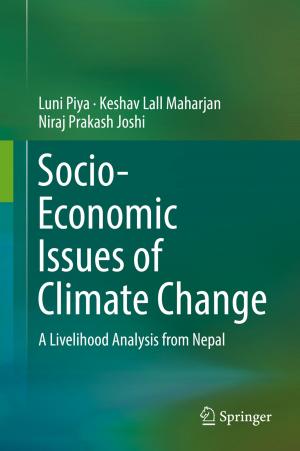South Asia in Global Power Rivalry
Inside-out Appraisals from Bangladesh
Business & Finance, Economics, International Economics, Nonfiction, Social & Cultural Studies, Political Science, Politics, Economic Conditions| Author: | ISBN: | 9789811372407 | |
| Publisher: | Springer Singapore | Publication: | June 7, 2019 |
| Imprint: | Palgrave Macmillan | Language: | English |
| Author: | |
| ISBN: | 9789811372407 |
| Publisher: | Springer Singapore |
| Publication: | June 7, 2019 |
| Imprint: | Palgrave Macmillan |
| Language: | English |
This edited volume examines global power-rivalry in and around South Asia through Bangladeshi lenses using imperfect and overlapping interest concentric-circles as a template. Dynamics from three transitions —the United States exiting the Cold War, China emerging as a global-level power, and India’s eastern interests squaring off with China’s Belt Road Initiative, BRI—help place China, India, and the United States (in alphabetical order) in Bangladesh’s “inner-most” circle, China, India, and the United States in a “mid-stream” circle, and the United States and Latin America, among other countries, in the “outer-most” circle, depending on the issue.
In an atmosphere of short-term gains over-riding long-term considerations, the desperate, widespread search for infrastructural funding inside South Asia enhances China’s value, raises local heat, releases new challenges, with costly default consequences looming, issue-specific analysis overtaking formal bilateral relations and a stubborn uncertainty riddling the Bangladeshi air as its policy preferences stubbornly show more certainty.
This edited volume examines global power-rivalry in and around South Asia through Bangladeshi lenses using imperfect and overlapping interest concentric-circles as a template. Dynamics from three transitions —the United States exiting the Cold War, China emerging as a global-level power, and India’s eastern interests squaring off with China’s Belt Road Initiative, BRI—help place China, India, and the United States (in alphabetical order) in Bangladesh’s “inner-most” circle, China, India, and the United States in a “mid-stream” circle, and the United States and Latin America, among other countries, in the “outer-most” circle, depending on the issue.
In an atmosphere of short-term gains over-riding long-term considerations, the desperate, widespread search for infrastructural funding inside South Asia enhances China’s value, raises local heat, releases new challenges, with costly default consequences looming, issue-specific analysis overtaking formal bilateral relations and a stubborn uncertainty riddling the Bangladeshi air as its policy preferences stubbornly show more certainty.















